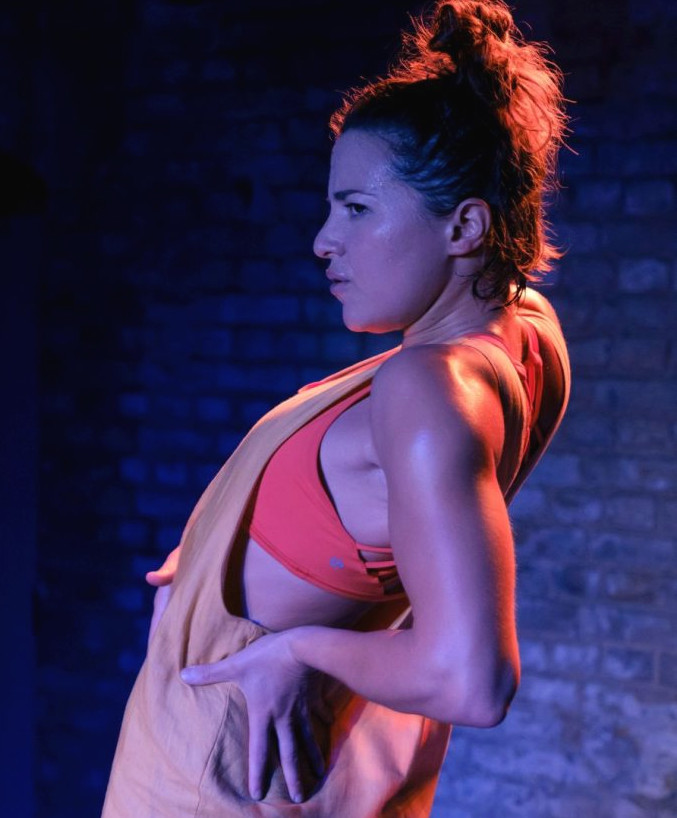
Tamsin Hurtado Clarke has set herself a formidable task: to take inspiration from her favourite novel, which is quite an epic and substantial volume, in order to make a short, one woman show. 100 Years of Solitude is a much celebrated work by South American author Gabriel Garcia Marquez. It concerns seven generations of a Colombian family and is noted for its use of Magic Realism, a style that weaves fantasy and myth into everyday life. Tamsin uses this as a basis for making a show about her own family history, her predecessors and her place in the perpetuation of the generations. With just three chairs on stage, a water bottle and a yellow jumpsuit Tamsin paints a picture of three women in her family; her grandmother, her mother and herself. She tells their stories of growing up, their lives in Venezuela, their loves and lessons. She highlights the connections between them as one mama links to the next. Gradually she accentuates her diverging viewpoint.
Tamsin plays herself and voices the other characters, gambolling and swirling around the stage as she evokes the past, breaking and contrasting the historical mood by dancing to modern Reggaeton music between scenes. It’s tough being alone on stage but Tamsin has a bright personality, she is animated and enthusiastic; gradually she wraps her story around us and entices us into her life. Her mother’s joy of singing is reflected in her own joy of performing. Tamsin uses some neat physical theatre and clowning to illustrate the tales of ghosts and adventure, restraint and freedom: moving and roaring like a jungle animal Tamsin takes command of the stage and the audience, cleverly employing a spectator or two to flesh out the cast now and again. The stories tell of church and sin, fertility and contraception; we can identify the catholic Latin American milieu. There are elements from Marquez style shrewdly utilised in this performance as we are swept between real life and fantasy.
Clearly there is a personal story in this performance. And while Tamsin manages to avoid the soppy sentimentality that sometime accompanies biographical theatre I had a feeling that we could have done with more of something from her; maybe just a longer show. After the performance Tamsin told me that she wanted to explain things from her own perspective “as a 35 year old woman, looking to the future”. At that age her Venezuelan grandmother had already given birth to seven children… but does Tamsin want the same? To become part of the family story by passing on her genes, her experiences; to become another generation. The show is brought to a clever conclusion as Tamsin reveals things from her point of view. ★★★★☆ Adrian Mantle 11th October 2019

